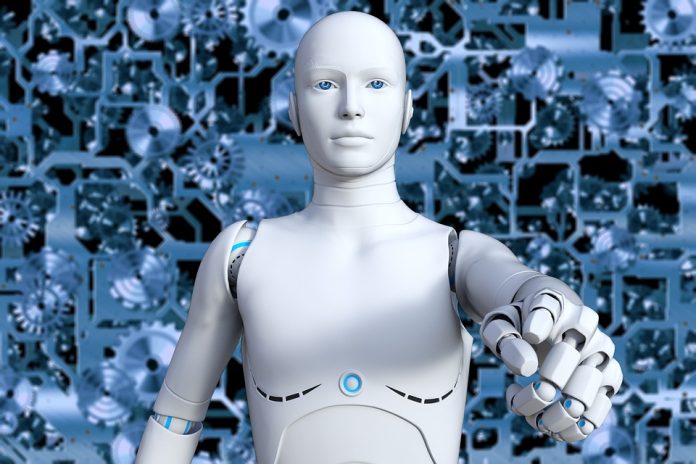Artificial intelligence (AI) has become a transformative force in our society, revolutionizing industries and improving efficiency in ways we never thought possible. From virtual assistants like Siri and Alexa to self-driving cars and advanced medical diagnostics, AI is changing the way we live and work. But with great power comes great responsibility, and the rise of AI also brings with it a unique set of risks and challenges. In this article, we will explore the potential dangers of artificial intelligence and how they could impact our society in the years to come.
### The Unprecedented Capabilities of AI
Artificial intelligence has advanced rapidly in recent years, thanks to breakthroughs in machine learning and neural networks. These technologies allow AI systems to learn from data, recognize patterns, and make decisions without human intervention. As a result, AI has the potential to greatly surpass human capabilities in certain areas, such as data analysis, image recognition, and language processing. While this opens up new possibilities for innovation and automation, it also raises concerns about the potential risks of AI.
### The Ethical Implications of AI
One of the biggest risks of artificial intelligence is its potential impact on ethical and moral decision-making. As AI systems become more advanced, they may be tasked with making difficult decisions that have significant moral implications. For example, self-driving cars must be programmed to make split-second decisions in potentially life-threatening situations. Should the car prioritize the safety of the driver, or should it prioritize the safety of pedestrians? These are complex ethical dilemmas that AI developers and policymakers must grapple with as AI continues to evolve.
### Job Displacement and Economic Inequality
Another significant risk of artificial intelligence is its potential to disrupt the job market and exacerbate economic inequality. As AI and automation become more prevalent, certain jobs may become obsolete, leading to widespread job displacement in certain industries. This could have serious economic ramifications for workers who are unable to transition to new roles. Furthermore, AI may also contribute to a widening wealth gap, as those with the skills to work alongside AI systems could see their incomes rise, while others are left behind.
### Security and Privacy Concerns
AI also raises concerns about security and privacy. As AI systems become more sophisticated, they may become more susceptible to cyberattacks and hacking attempts. For example, AI-powered chatbots and virtual assistants could be manipulated to extract sensitive information from users. Additionally, the vast amount of data collected and analyzed by AI systems raises questions about privacy and data protection. How can we ensure that AI is used responsibly and ethically, without compromising individual privacy and security?
### Bias and Discrimination in AI
Another pressing issue in the development of AI is the potential for bias and discrimination to be perpetuated by AI systems. AI algorithms are only as good as the data they are trained on, and if that data is biased or discriminatory, the AI system will reflect those biases. For example, AI-powered recruiting tools have been found to inadvertently favor male candidates over female candidates, perpetuating gender bias in the hiring process. If left unchecked, these biases could have far-reaching consequences for society, further entrenching existing inequalities.
### The Threat of Autonomous Weapons
Perhaps the most alarming risk of artificial intelligence is the potential for the development of autonomous weapons. As AI technology continues to advance, there is a growing concern that autonomous weapons systems could be developed and deployed, leading to a new era of warfare. These weapons could make decisions without human intervention, raising significant ethical and legal questions about their use in conflict. The development and deployment of autonomous weapons could have catastrophic consequences, and it is imperative that policymakers take steps to prevent their proliferation.
### Mitigating the Risks of AI
While the risks associated with artificial intelligence are indeed significant, there are steps that can be taken to mitigate these risks and ensure that AI is developed and deployed responsibly. First and foremost, there needs to be increased transparency and accountability in the development and deployment of AI systems. This includes rigorous testing and oversight to ensure that AI systems are free from bias and are making ethical decisions.
Furthermore, there needs to be greater collaboration between AI developers, policymakers, and ethicists to address the potential risks of AI. This multi-disciplinary approach can help identify potential pitfalls and ensure that AI is developed in a way that is ethical and sustainable. Additionally, there needs to be a renewed emphasis on education and skills training to prepare the workforce for the changes brought about by AI.
### The Future of Artificial Intelligence
As AI continues to evolve, it is essential that we remain vigilant about the potential risks and challenges associated with this transformative technology. By addressing these risks head-on and taking proactive steps to ensure that AI is developed in a responsible and ethical manner, we can reap the many benefits that AI has to offer while minimizing its potential downsides. It is an exciting time to be at the forefront of AI innovation, and with careful consideration and strategic planning, we can pave the way for a future where AI enhances our lives without undermining our well-being.

